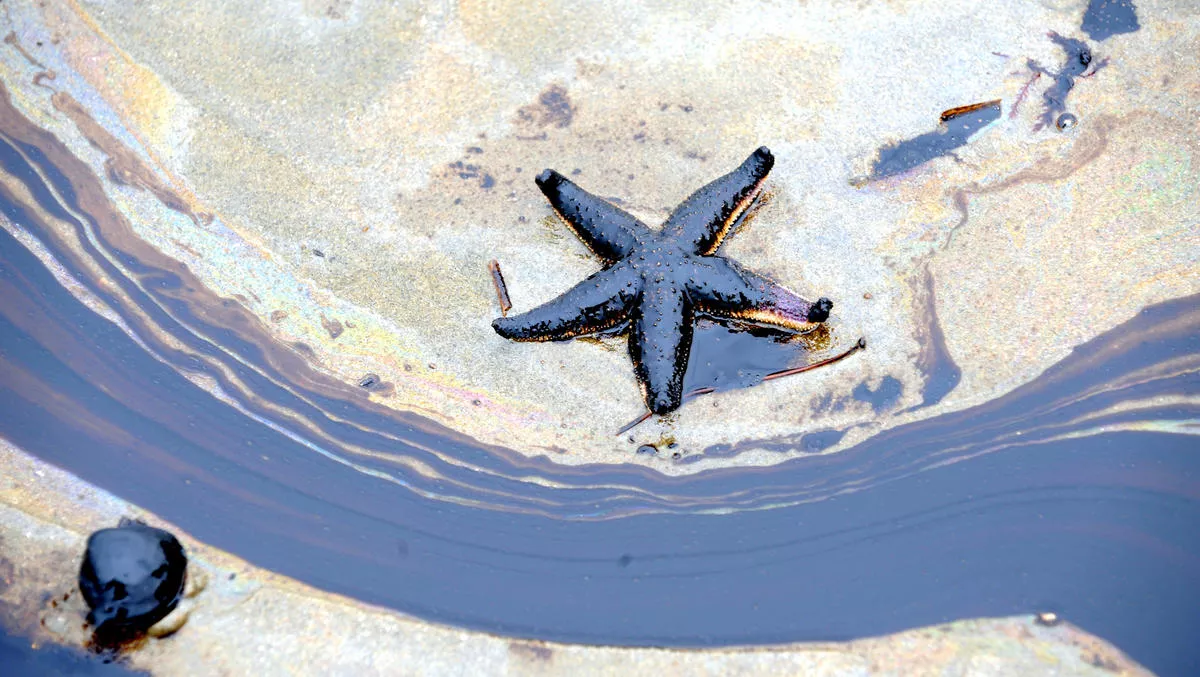
The Dark Stain
President Obama has begun comparing it to the 9/11 terrorist attacks in its magnitude. The April 20th explosion and fire aboard BP's Deepwater Horizon oil drilling rig, 60km off the cost of Louisiana, killed 11 workers and injured 17 others.
But it was the aftermath which turned that tragic mishap into a catastrophe. Two days after the explosion, it was reported that oil was leaking from the rig at the rate of 8000 barrels (1.3 million litres) per day.
But estimates now vary between 35,000 and 60,000 barrels per day – the equivalent of the total amount spilled by the 1989 Exxon Valdez disaster every one to two weeks. The oil slick covers an estimated 6500 square kilometres of ocean and has fouled more than 600 kilometres of Gulf Coast shoreline. Seabirds, mammals and reptiles are being recovered daily by wildlife rescuers, many beyond saving. Deepwater creatures, such as dolphins and sharks, are absorbing toxic chemicals in their food and have been observed swimming closer than normal to shore, possibly because the pollution has depleted the oxygen in the water further out.
Damage to the coastal environment remains difficult to calculate, but the marshland vegetation is believed to be dying and the long-term ecological effects, it is feared, could be irreparable. More than 42,000 personnel are involved in protecting the shoreline and cleaning up vital coastlines, over 6800 are vessels responding on site, and approximately a million metres of containment boom and two million metres of sorbent boom have been deployed. Efforts to cap the gusher have been varied and met with only limited success.
As of late June, it was estimated that less than half the leaking oil was being captured. The latest effort involves drilling a 'relief well' to take some of the pressure off the damaged well, but the approaching hurricane season may further frustrate efforts to cap and contain. The US government bluntly says BP is responsible, although BP insists it still doesn't know what caused the explosion.
There are dark mutterings that the company has been cavalier in its safety policies, driven by America's insatiable thirst for oil. Heroes of the moment are the officers and volunteers of the US Fish - Wildlife Service, who are struggling to cope with the mounting crisis affecting fauna. "Every day, we will do our best," officer Jereme Phillips wrote in a blog posting.

